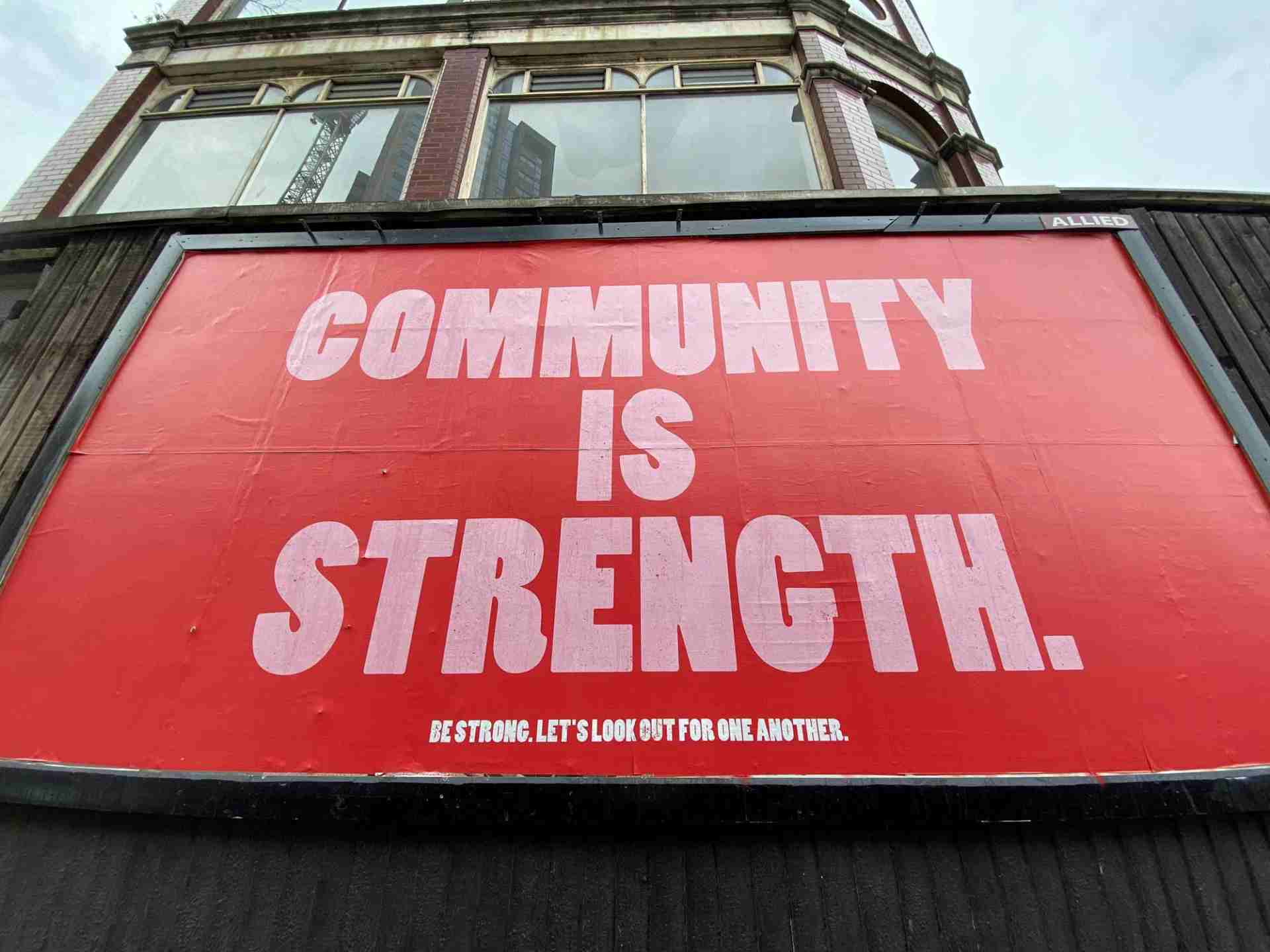In a charity, it is not just about developing projects and handling finance, but also about mobilising a team of volunteers whose enthusiasm and devotion is the driving force behind our work.
So I’ve developed my own style of volunteer management. A style that actually works by doing more than just filling rosters – it builds a community of people generally united by purpose.
Here is what I’ve learned about keeping volunteers engaged, and how I practice those lessons so that every person who volunteers with us feels respected, valued and enthused enough to keep showing up: 1. Provide benefits. 2. Address volunteers’ emotional needs, first and foremost. 3. Remember that volunteers are human beings. 4. Be flexible. 5. Be thoughtful in your communications. 6. Give regular reminders of the bigger picture. 7. Be accountable.
Recruitment with a Vision
Recruiting volunteers is never about filling a gap, it’s about bringing in people who feel called by what the charity is trying to achieve. Right from the start, we make it clear what our charity stands for, what outcomes we want to achieve, and how the volunteer will contribute to those goals. If the volunteer feels that our charity and its goals are theirs, too, they will want to be with us.
We do this by enlisting targeted recruitment campaigns that directly address potential volunteers’ aspirations to make a difference in specific ways.
For instance, if the aim is to enhance educational opportunities for underprivileged children, we target communities and professional networks that are vested in education: teachers, student groups, and education majors.
We share real stories of the difference we are making and provide clear ways for volunteers to get involved, so that they know exactly how their efforts will be used and valued.
Tailored Roles to Maximise Impact
It’s a mistake to say that one size fits all; we are very careful to match volunteers to roles that play to their strengths, interests and personal development aspirations.
The tailoring means volunteers bring their A-game, as well as feeling good about what they are doing.
It’s all about the win-win – we need our volunteers’ energy and skills, and they need our charity to grow and develop.
Training and Development: Elevating Your Volunteer Force
We will improve our team by investing in training and developing our volunteers.
I’ve always believed that even as we taught our volunteers how to do their jobs, we must also foster an atmosphere where each volunteer could strive for personal and professional growth and development.
Ongoing Comprehensive Onboarding Process: From day one, our training journey starts with a comprehensive onboarding process. This is crucial to set expectations and ensuring that volunteers understand their role and how they contribute to the mission of our charity. During onboarding, volunteers are exposed to our charity’s culture, our key team members, and our operational processes. We have several modules delivered through interactive workshops, shadowing sessions, and digital learning modules to accommodate different learning styles and schedules.
Role-Specific Training: After onboarding, volunteers receive role-specific training designed for their specific role. For example, if they will be working in front-line services, fundraising, behind the scenes or out in the community, we want to provide them with the tools and knowledge to succeed in their role. Fundraisers may receive training in how to use our donor management software, while a volunteer working in community outreach could receive training in effective communication styles for different demographics.
Skill Development Workshops: Realising that many of our volunteers join us in order to give back as well as to learn, we periodically hold skill development workshops that cater to different interests and professional passions. Leadership development or project design might be covered, as can conflict resolution or digital literacy. The subjects might be directly applicable to working within the charity or they might be more broadly useful skills that volunteers can take with them into their day-to-day life or work.
Ongoing support and mentor ship: Training is not complete with the end of the formal session. We have this system of providing ongoing support and mentorship to enable volunteers feel comfortable to render assistance in the course of their work. We have a system of mentorship where every volunteer is attached to a senior team member in the organisation who serves as their mentor. The mentorship scheme is vital as it provides the opportunity for questions and answers and any challenges that arise.
Using Technology to Train: To complement our robust training programme, we use technology to make learning available and engaging. Having a good charity CRM system is key to delivering targeted content that our volunteers can access from anywhere. This allows volunteers to take in training materials on their own time, and engage with content when it works for them. Further, by leveraging online forums and chat groups, we can facilitate a community of learning and sharing between volunteers, where they can post questions, share ideas, and give each other feedback.
Measuring the impact of training: We use continuous assessment and feedback loops to constantly refine our training programmes. Volunteers are invited to complete surveys and feedback forms after each training that they complete, which are stored in the CRM. Volunteers can also provide feedback about whether the training was useful. This feedback is an important input in refining the training strategies to make them more useful and relevant.
The focus on training and development in charity management is a reflection that we care about our volunteers. We are willing to invest time and resources in them to help them grow, which in turn will help them have a more fulfilling experience and contribute more effectively.
This leads not only to producing a more effective and dedicated volunteer corps, but also a more vibrant community we serve, a cycle of empowerment and excellence that keeps our charity growing.

Recognition and Appreciation
As well as being the nice thing to do, thanking and acknowledging our volunteers is an important aspect of good volunteer management practice. Whether in the form of an honour, a Thank you event or a report in our newsletter, maintaining a steady schedule of recognition helps volunteers to know they are appreciated.
This acknowledgement is not restricted to the most formal of gestures – it underlies the everyday interactions of life.
A simple ‘thank you’ can mean the world.
Feedback: A Two-Way Street
I believe that the first steps to solving a problem is being able to speak to it and we need to listen to what our volunteers have to say. So we have a feedback session a couple of times a year where we learn more about their perceptions, fears and ideas on how we could improve the programe.
It’s this dialogue that means our volunteers not only feel they have been heard, but they have a stake in helping us shape the development of the charity, and we can develop our management practices (before they become problems).
Fostering a Sense of Community
Building a sense of community among divergent volunteers can be a key to maintaining engagement over the long term.
We try to help foster this sense of community by organising regular meet-ups, team-building activities and volunteer-led projects, both of which enhance interpersonal relationships and a sense of shared commitment.
Here, the role of a robust nonprofit CRM becomes invaluable. We chose the best charity crm solution tailored specifically to manage volunteer data, which helps us track volunteer activities, preferences, and availability.
In doing so, we can personalise what we say to the volunteer – thanking them for various activities, and directing conversations to targeted topics based on their contributions and interests. For example, if a group of volunteers hosts an event in the community, we might send them personalised thank-yous for their efforts and highlight their successes in newsletters and across social media.
We can use the CRM to send out surveys or feedback forms to volunteers to fill in and to record data about how we could make our service better – what we do well, what we don’t do well, what could be done better, their ideas for new projects or improvements; it makes them feel like they really part of the charity. It can also be linked to Xero and Gift Aid.
Recruitment and community-building in a charity context requires sensitive thinking towards the distinctive ethos of the organisation, and towards the unique needs of volunteers.
If we communicate the value proposition of the charity well early on at recruitment, and then use technology (eg, a nonprofit CRM) to build a community, then we’re scaling operationally but also building a volunteer army who are inspired, motivated and invested in the vision of the organisation.
This approach keeps our charity strong and viable, one that connects people in community and action.



